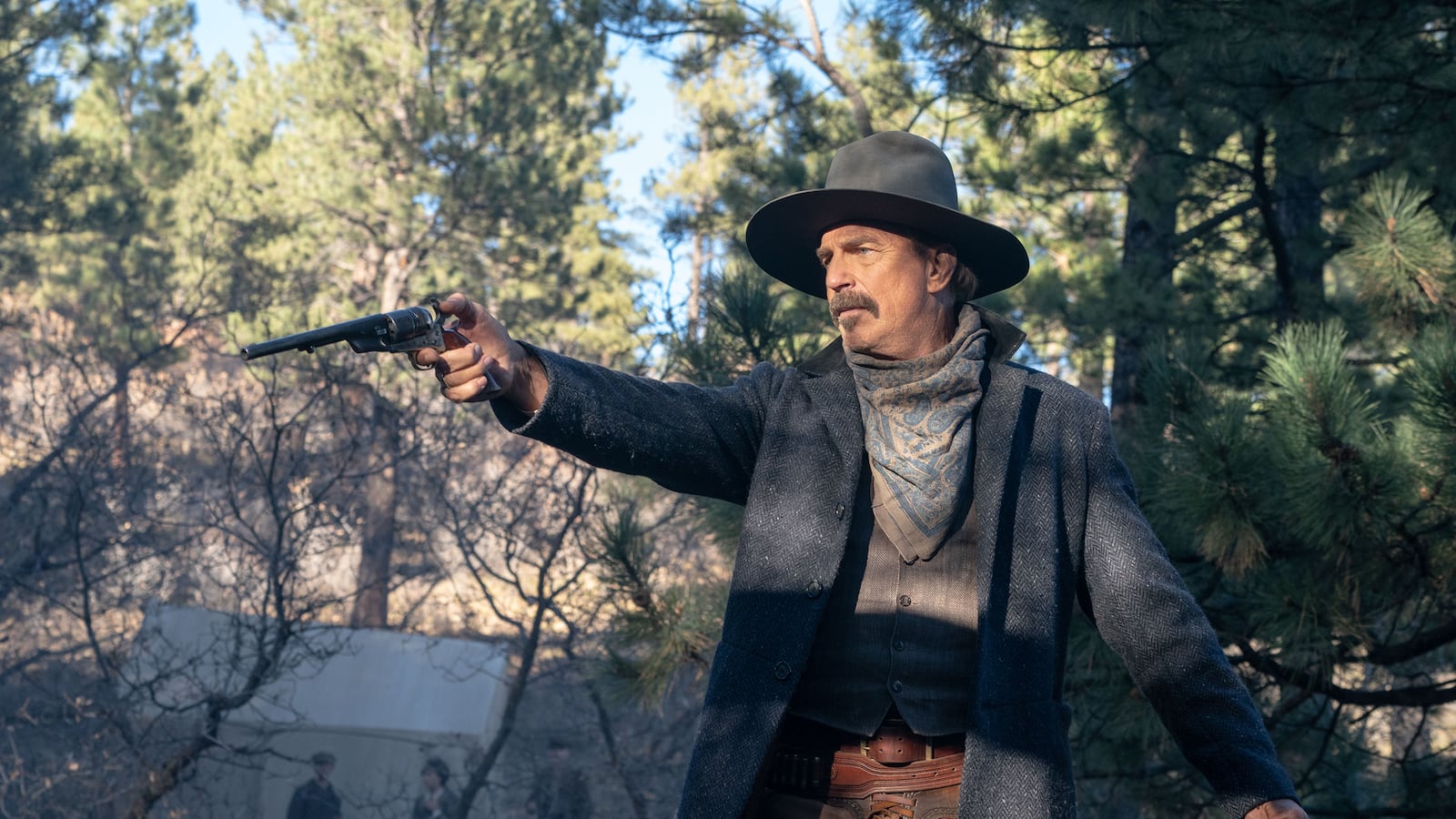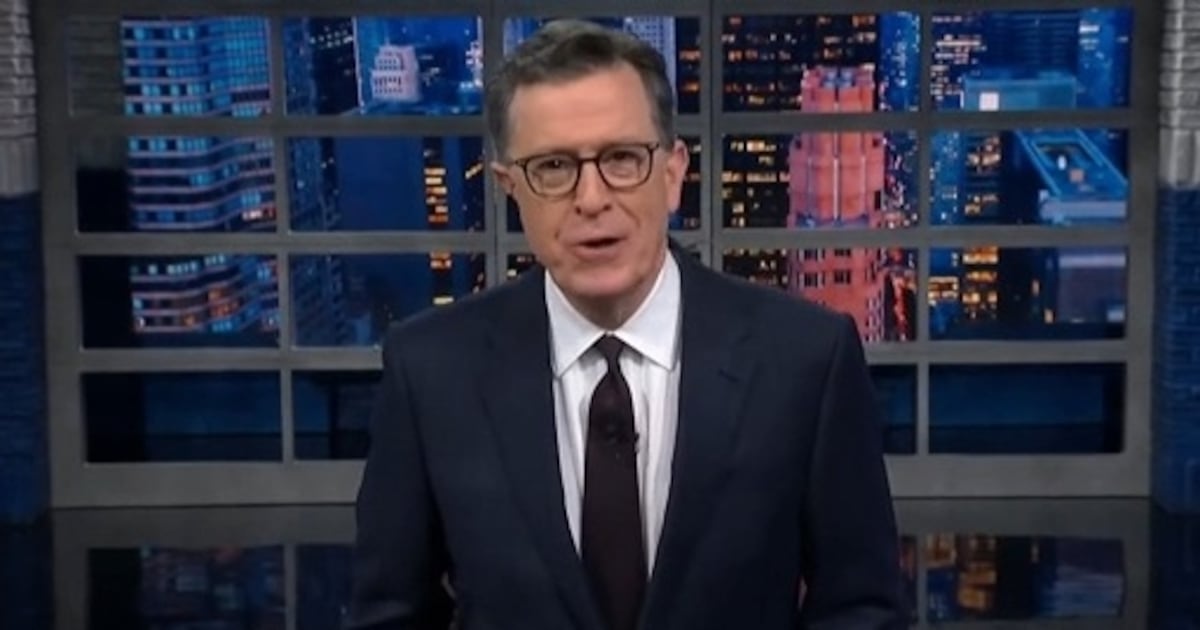Horizon: An American Saga—Chapter 1’s title card is accompanied by the sound of John Debney’s Old West score swelling to a crescendo—an announcement of writer/director/star Kevin Costner’s epic intentions for this throwback oater, which is the maiden segment of a four-installment magnum opus. However, no matter that bellowing introduction or the fact that it runs a whopping three hours long, the Oscar-winner’s first behind-the-camera effort since 2003’s Open Range feels surprisingly small, slender, and scattershot. A multi-pronged look at the Civil War-wracked 1860s, it’s a stab at widescreen grandeur that’s so expansive and incomplete that it resembles a modern television series awkwardly edited into feature form.
The fact that Horizon: An American Saga—Chapter 1 recalls TV is a bit ironic, considering that Costner’s dedication to the project was part of the reason he stepped away from his smash hit Yellowstone. More startling still, the filmmaker’s latest is far less cinematic than Taylor Sheridan’s contemporary Western. Despite one or two serviceable vistas of riders galloping along the dusty, unforgiving plains, Costner forgoes the sweeping panoramas that have long galvanized the finest of the genre, including his own celebrated Dances with Wolves. In purely visual terms, his film feels cramped and unimaginative, full of too many pedestrian camera set-ups and tight close-ups that deny the picture the majestic scope it demands.

Alejandro Edda
Richard Foreman/Richard ForemanWhat it lacks in cinematographic splendor, Horizon: An American Saga—Chapter 1 compensates for with soundtrack bombast and narrative bloat. In the San Pedro Valley circa 1859, a rider searches for a frontier town called Horizon, only to discover that the reason he missed it during his trot through the territory is that it’s an unsettled stretch of land whose surveyors are now corpses. Once they’re buried, this man opts to take up the strangers’ cause, and years later, Horizon is a fledgling settlement. Unfortunately, it’s smack dab in the middle of Apache country, and hostile Native American warrior Pionsenay (Owen Crow Shoe) decides to ravage the community, resulting in a prolonged siege during which the settlers are fatally overrun—save, that is, for Frances Kittredge (Sienna Miller) and her daughter Lizzy (Georgia MacPhail), who survive by taking shelter in an underground tunnel where they use a rifle barrel to breathe topside air.
Violence is survival in Horizon: An American Saga—Chapter 1. As Frances, Lizzy and their compatriots are aided by a Union Army battalion led by Colonel Houghton (Danny Huston) and First Lt. Trent Gephardt (Sam Worthington)—the latter of whom has eyes for Frances—the movie’s attention turns elsewhere. A caravan on the Santa Fe Trail is commanded by Matthew Van Weyden (Luke Wilson), who’s dealing with a couple of upper-crust members (Ella Hunt and Tom Payne) who aren’t pulling their weight and look down on their fellow working-class travelers such as Owen Kittredge (Will Patton) and his three tomboy-ish daughters. Meanwhile, somewhere in the rural Montana Territory, Ellen (Jena Malone) shoots a man dead in his sleep and flees with her child, prompting the deceased’s villainous sons Caleb (Jamie Campbell Bower) and Junior (Jon Beavers) to embark on a mission to hunt her down and bring her back to their ruthless mother (Dale Dickey).
In ways that are never quite clear, Caleb and Junior track Ellen to a remote outpost where she’s now married to wimpy businessman Walter Childs (Michael Angarano) and employing feisty prostitute Marigold (Abbey Lee) as the infant’s nanny. Their real aim, it turns out, is snatching the kid, but their endeavor is thwarted by a run-in with Hayes Ellison (Costner), who’s visiting the locale for reasons that, like his origins and true nature, are meant to be mysterious. Costner embodies Ellison as a stout and noble gunslinger of few words, yet he’s so paper-thin that he resonates as more of a cardboard cut-out than a legitimate badass. His extended, tense conversation with volatile Caleb is the film’s high point. Even then, though, it climaxes with a rather underwhelming confrontation, and Hayes’ decision to subsequently flee with Marigold and the tyke proves less urgent than contrived.
There are other subplots strewn throughout Horizon: An American Saga—Chapter 1, including the decision by some Horizon settlers to earn cash by murdering the Apache who did them wrong. Yet by the time the film returns to that concern, it’s gotten lost in a tangle of thin and generic storylines. Costner expends significant energy on excessive and unexciting set pieces as well as introductions that fail to make any of his myriad players (except for the reliably great Jeff Fahey as a merciless tracker) stand out. It’s apparent that these many stock types will cross paths at some juncture, but it doesn’t happen during these first three hours; from promising beginning to anticlimactic conclusion, the material remains hopelessly fragmented.

Kevin Costner and Abby Lee
Courtesy of Warner Bros. PicturesWhenever Costner isn’t on-screen, Horizon: An American Saga—Chapter 1 flounders about in search of a protagonist who’s worthy of attention. Miller and Wilson look wholly out of place in the West, and everyone else appears to be playing dress up in period costumes and facial hair. Even with the participation of Patton and Michael Rooker, the proceedings lack rugged, hard-bitten authenticity. Costner’s script attempts, from various angles, to depict the strength, resilience, bravery, and suffering of American frontiersmen. What he delivers instead, however, is mostly a collection of stale clichés which lack the personality that might make them seem fresh again.
Lurking on the edges of this odyssey is a compelling sense of the great gears of time and fate grinding ever onward, thrusting pioneers into uncharted terrain where brothers find themselves cast against brothers, men against women, and interlopers against indigenous tribes. Alas, there’s scant structure to Horizon: An American Saga—Chapter 1, thereby undercutting its strained stabs at romanticizing the West. Worst of all, the film is so content with being merely an initial episode that it doesn’t bother devising a serviceable ending, instead simply segueing out of the blue to a montage of clips from the forthcoming Chapter 2. Given the leadenness of this preliminary offering, it’s difficult to imagine many saddling up for more of the same.






